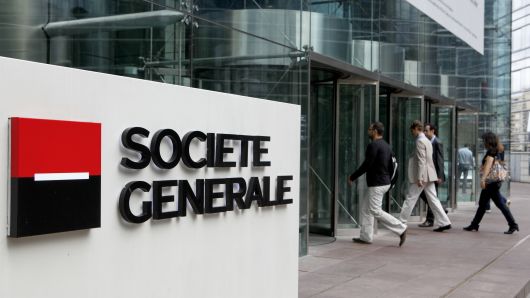North Korea Sanctions Get Upgraded, But Will They Work?
Last week, President Obama signed into law the North Korea Sanctions and Policy Enhancement Act of 2016, which sharply expands the scope of U.S. sanctions targeting the hermit kingdom of North Korea. The legislation had received overwhelming support in the Senate and House of Representatives in recent weeks and follows in the wake of North Korea’s recent missile launches. Whether the legislation will achieve its policy objectives is far less clear, but considering the secondary nature of certain of the additional sanctions, non-U.S. persons will have to pay closer attention to the reach of the new U.S. sanctions authorities.
Prior to the new legislation, the United States already had imposed significant trade restrictions, including a ban on the importation of goods, services, or technology from North Korea and a tough export-control regime. Moreover, the U.S. had in place a series of blocking orders targeting persons involved in the development of North Korea’s WMD program(s), persons and entities that are a part of the Government of North Korea or its ruling party, the Workers’ Party, and persons involved in the export of luxury goods to North Korea, amongst others. Considering the fact that the U.S. had imposed comprehensive sanctions on North Korea in one form or another for the better part of the previous seven decades (roughly since 1950), U.S.-North Korean economic and trade relations have long been extremely limited, to say the least.
For this reason, Congress chose to utilize further sanctions authorities to target North Korea via the North Korea Sanctions and Policy Enhancement Act. Seeing that current U.S. sanctions had proven unable to stem the tide of North Korea’s development of ballistic missiles, including and especially those capable of carrying nuclear warheads, the House Foreign Affairs Committee led an effort to both codify existing Executive Orders and impose tougher and far more punitive sanctions affecting the dealings of third parties with North Korea, particularly Chinese firms.
Headlining the new legislation, Section 104 of the Act mandates the President to designate persons (U.S. and non-U.S.) that have engaged in certain activities with North Korea – much of which effectively codifies but also moves significantly beyond current Executive Orders. For instance, the President is obligated to designate persons that:
(1) knowingly, directly or indirectly, imports, exports, or re-exports to, into, or from North Korea any goods, services, or technology controlled for export by the United States because of the use of such goods, services, or technology for [WMD] or delivery systems for such weapons and materially contributes to the use, development, production, possession, or acquisition by any person of a nuclear, radiological, chemical, or biological weapon or any device or system designed in whole or in part to deliver such a weapon;
…
(7) knowingly engages in significant activities undermining cyber-security through the use of computer networks or systems against foreign persons, governments, or other entities on behalf of the Government of North Korea;
(8) knowingly, directly or indirectly, sells, supplies, or transfers to or from the Government of North Korea or any person acting for or on behalf of that Government, a significant amount of precious metal, graphite, raw or semi-finished metals or aluminum, steel, coal, or software, for use by or in industrial processes directly related to [WMD] and delivery systems for such weapons, other proliferation activities, the Korean Workers’ Party, armed forces, internal security, or intelligence activities, or the operation and maintenance of political prison camps or forced labor campus, including outside of North Korea…
Persons so designated shall be subject to blocking sanctions under IEEPA, as well as certain other sanctions either mandatory or lying at the President’s discretion, particularly financial and procurement sanctions.
Furthermore, there is a broad range of certain other activities in which the decision to designate U.S. and non-U.S. persons for sanctions lies at the discretion of the President (§ 104(b)). These provisions seek to sanction conduct that certainly goes beyond that found in existing Executive Orders. For instance, the President is granted the discretion to designate persons that have provided material support for any violation or evasion of existing UN Security Council resolutions targeting the activities of North Korea and its government or that have facilitated the transfer of funds to a person currently under designation by U.S. authorities, amongst others. Further, the President can designate any person that has knowingly contributed to the bribery of a North Korean official or the misappropriation or theft of public funds. In granting the President such authorities, Congress has expanded the universe of conduct that can be sanctioned and has forced non-U.S. persons to tune their ear closer to the potential reach of U.S. sanctions.
Listening to Congressional officials talk about their legislative efforts over the past few months, passage of the North Korea Sanctions and Policy Enhancement Act of 2016 was intended to provide the President the additional leverage necessary to convince China to take its own punitive action against North Korea. Considering the fact that China is one of the few remaining countries with influence over decision-making in North Korea – not to mention its surviving trade relations with the country – many in the United States believe that China will have to put pressure on North Korea if we are to see a de-nuclearization on the Korean peninsula and a return to negotiations with world powers.
But the likelihood that the President would exercise his new sanctions authorities against Chinese persons and companies that continue to do certain business with North Korea – especially against such persons and entities that would have a deep impact on Chinese policy on the issue – is low. Needing China to exert its influence over North Korea to de-escalate the situation, the Obama administration will be understandably cautious in its use of its new sanctions authorities. As members of the administration have noted, cooperation with China is critical to winning support for additional resolutions at the UN Security Council condemning North Korea for its nuclear-related activities and imposing additional sanctions measures. And while Congress has mandated the President to designate persons engaged in the conduct described in § 104(a) of the Act, the fact remains that the President has enormous discretion when it comes to the fact-finding process underlying any such designation.
Much like previous cases, then, Congress seems to have over-estimated the expected impact of its legislative sanctions, viewing them as a tailor-made solution to whatever international crisis greets us. Some high-level officials in the Obama administration admit as much. As one senior U.S. official recently said, “It’s not like Iran where they have a lot of vulnerability because there’s a lot of commercial activity.” Instead, North Korea’s long-standing isolation “limits the power of sanctions.”



